Filter by
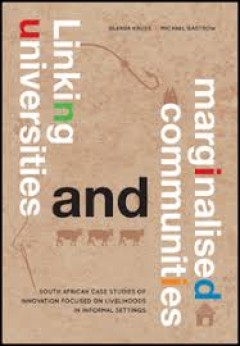
Linking universities and marginalised communities: South African case studies…
South African universities are mandated to promote scholarship that is socially and economically responsive to local contexts. The contribution of universities to innovation is a key driver of economic and social development, but should be more effectively harnessed to address poverty and inequality. Linking Universities and Marginalised Communities examines how South African universities en…
- Edition
- -
- ISBN/ISSN
- 9781552505670
- Collation
- xiii, 128 p.
- Series Title
- -
- Call Number
- 378.103 KRU l

Biological invasions in South Africa
This open access volume presents a comprehensive account of all aspects of biological invasions in South Africa, where research has been conducted over more than three decades, and where bold initiatives have been implemented in attempts to control invasions and to reduce their ecological, economic and social effects. It covers a broad range of themes, including history, policy development and …
- Edition
- -
- ISBN/ISSN
- 9783030323943
- Collation
- xxiv, 975p. : ill.
- Series Title
- -
- Call Number
- 577.18 BIO b
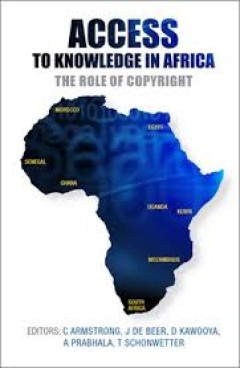
Access to knowledge in Africa : the role of copyright
The emergence of the Internet and the digital world has changed the way people access, produce and share information and knowledge. Yet people in Africa face challenges in accessing scholarly publications, journals and learning materials in general. At the heart of these challenges, and solutions to them, is copyright, the branch of intellectual property rights that covers written and related w…
- Edition
- -
- ISBN/ISSN
- 9781552504901
- Collation
- xv, 357 p.; 22 cm.
- Series Title
- -
- Call Number
- 346.60482 ACC a

Industries without smokestacks: industrialization in Africa reconsidered
Structural transformation in Africa has become a hot topic. One of the earliest stylized facts of development economics is that low-income countries have large differences in output per worker across sectors, and movement of workers from low- to high-productivity sectors—structural transformation is a key driver of economic growth. Between 1950 and 2006, about half of the catch-up by developi…
- Edition
- -
- ISBN/ISSN
- 9780198821885
- Collation
- -
- Series Title
- -
- Call Number
- 338.9 IND i
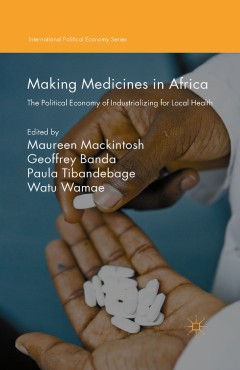
Making medicines in Africa : the political economy of industrializing for loc…
The importance of the pharmaceutical industry in Sub-Saharan Africa, its claim to policy priority, is rooted in the vast unmet health needs of the sub-continent. Making Medicines in Africa is a collective endeavour, by a group of contributors with a strong African and more broadly Southern presence, to find ways to link technological development, investment and industrial growth in pharmaceutic…
- Edition
- -
- ISBN/ISSN
- 9781137546470
- Collation
- xxi, 334p. : ill.
- Series Title
- -
- Call Number
- 338.476151096 MAK m
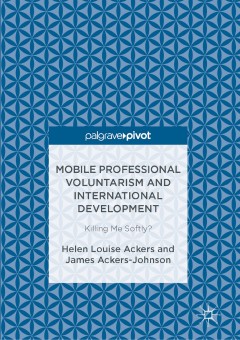
Mobile professional voluntarism and international development : killing me so…
This book explores the impact that professional volunteers have on the low resource countries they choose to spend time in. Whilst individual volunteering may be of immediate benefit to individual patients, this intervention may have detrimental effects on local health systems; distorting labour markets, accentuating dependencies and creating opportunities for corruption. Improved volunteer dep…
- Edition
- -
- ISBN/ISSN
- 9781137558336
- Collation
- xv, 173p. : ill.
- Series Title
- -
- Call Number
- 320 ACK m

Social work in Africa: exploring culturally relevant education and practice i…
ocial Work in Africa offers professors, students, and practitioners insight concerning social work in the African context. Its purpose is to encourage examination of the social work curriculum and to demonstrate practical ways to make it more culturally relevant. Drawing on her experience as a social work instructor in Ghana with field research conducted for her doctoral thesis, author Linda Kr…
- Edition
- -
- ISBN/ISSN
- 9781552385968
- Collation
- xxviii, 242 p. : ill. ; 23 cm.
- Series Title
- Africa, missing voices series ; 10
- Call Number
- 361.307116 KRE s

Housing market dynamics in Africa
This open access book utilizes new data to thoroughly analyze the main factors currently shaping the African housing market. Some of these factors include the supply and demand for housing finance, land tenure security issues, construction cost conundrum, infrastructure provision, and low-cost housing alternatives. Through detailed analysis, the authors investigate the political economy surroun…
- Edition
- -
- ISBN/ISSN
- 9781137597922
- Collation
- xviii, 272p. : ill
- Series Title
- -
- Call Number
- 330.91732 BAH h
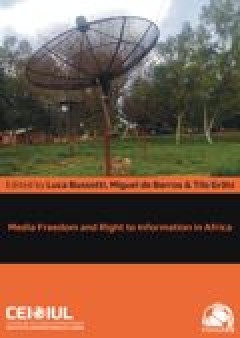
Media freedom and right to information in Africa
This e-book is the result of a panel organized in the Fifth European Congress of African Studies (ECAS 5) that took place in Lisbon in June 2013. We thought of organizing this panel on “Press Freedom and Right to Information in Africa” since the question of freedom, especially press freedom, is presently extremely important in all African countries. However, it is not yet well known, both i…
- Edition
- -
- ISBN/ISSN
- 9789897325793
- Collation
- 136 p.; 22 cm.
- Series Title
- -
- Call Number
- 350 BAR m
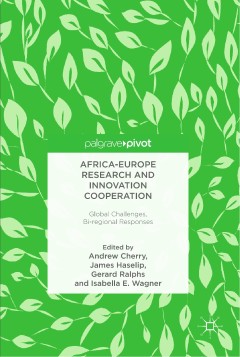
Africa-Europe research and innovation cooperation : global challenges, bi-reg…
This edited volume is concerned with the evolution and achievements of cooperation in research and innovation between Africa and Europe, and points to the need for more diversified funding and finance mechanisms, and for novel models of collaboration to attract new actors and innovative ideas. It reflects on the political, economic, diplomatic and scientific rationale for cooperation, while als…
- Edition
- -
- ISBN/ISSN
- 9783319699295
- Collation
- xxxi, 147p. : ill.
- Series Title
- -
- Call Number
- 507.206 AFR a
 Computer Science, Information & General Works
Computer Science, Information & General Works  Philosophy & Psychology
Philosophy & Psychology  Religion
Religion  Social Sciences
Social Sciences  Language
Language  Pure Science
Pure Science  Applied Sciences
Applied Sciences  Art & Recreation
Art & Recreation  Literature
Literature  History & Geography
History & Geography